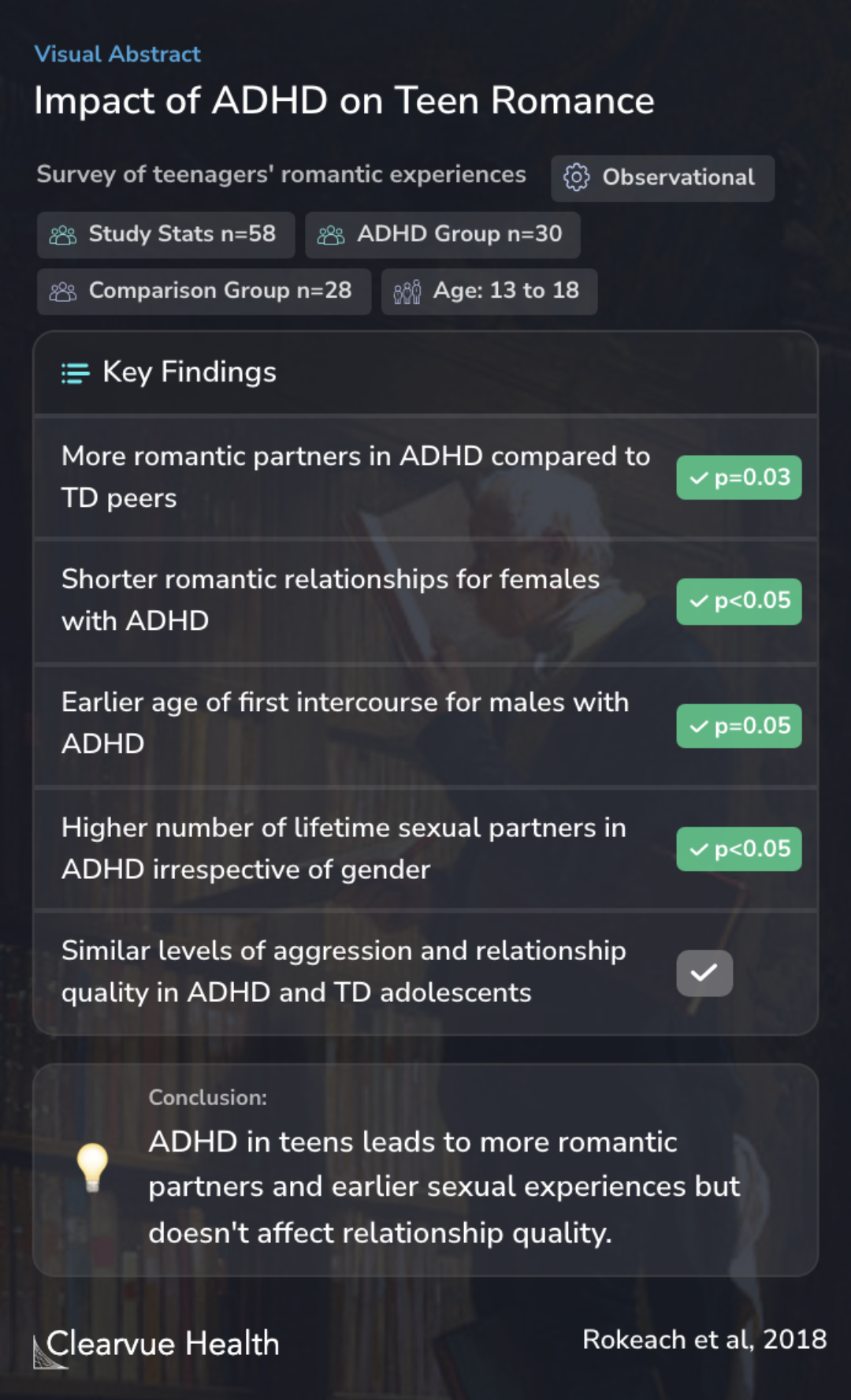The Romantic Relationships of Adolescents With ADHD
Impact of ADHD on Teen Romance
Rokeach A;Wiener J;

Objectives
The study set out to explore how teenagers with and without ADHD differ in their romantic relationships. This included looking into how often they are in relationships, what these relationships are like, and the quality of these relationships.
This study compared the romantic relationships of adolescents with and without ADHD with regard to romantic involvement, relationship content, and relationship quality.
Methods
In this investigation, a group of 58 young individuals, aged between 13 to 18, participated. This group was split into two: 30 of them were identified with ADHD, and the remaining 28 served as a comparison group without ADHD. Each participant filled out questionnaires that asked about different aspects of their romantic relationships. This method provided a clear picture of how these teenagers experience love and relationships differently.
A community sample of 58 participants (30 ADHD, 28 Comparison), ages 13 to 18, completed questionnaires assessing various features of romantic relationships.
Results
The findings revealed some interesting differences. Teenagers with ADHD reported having more romantic partners compared to their peers without ADHD. Specifically, girls with ADHD tended to have shorter relationships, while boys with ADHD experienced their first romantic encounters nearly two years earlier than their peers. Additionally, regardless of gender, those with ADHD had almost twice as many romantic partners over their lifetimes. Despite these differences, the study found that the level of aggression and the overall quality of relationships were similar for teenagers with and without ADHD.
Adolescents with ADHD reported having more romantic partners than their typically developing (TD) peers. Females with ADHD were found to have shorter romantic relationships than TD adolescents while males with ADHD reported their age of first intercourse to be nearly 2 years sooner than ...
Conclusions
Given the complex nature of romantic relationships and their importance for young people's development, the study suggests that when assessing adolescents with ADHD, it's important to consider their romantic experiences. This aspect of their lives can provide valuable insights into their emotional and social wellbeing.
Given the outcomes associated with poor-quality romantic relationships, comprehensive assessments of adolescents with ADHD should include queries into their romantic relationships.
Key Takeaways
Context
In the broader context of ADHD research, this study adds to the understanding of how ADHD affects social relationships beyond childhood, particularly during the critical adolescent years.
Other research has shown that ADHD can influence social connections and emotional empathy in various stages of life, from adolescence to older adulthood.